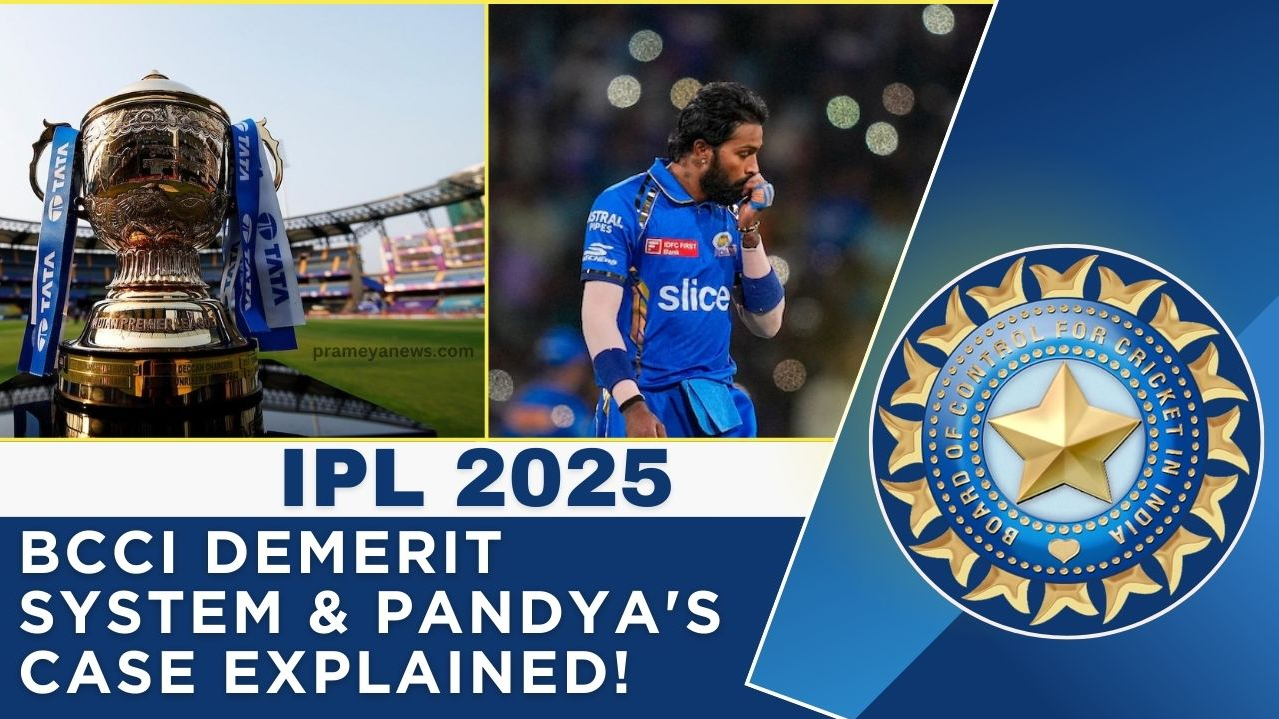

The BCCI's New Game Plan: Demerit Points Explained
The BCCI's main goal, as they've stated, isn't necessarily to hand out suspensions left and right. Instead, they're aiming to use the threat of suspension as a way to get players, officials, and others to clean up their act. In a message to the franchises, the BCCI made it clear: "The IPL believes that the threat of a suspension is the strongest deterrent to bring about a change in behaviour, hence the system of accumulated Demerit Points which is included in the Code of Conduct."
This new system takes some cues from the International Cricket Council (ICC) Code, but there are a few key differences. One notable difference is how long these points stick around. While the ICC keeps them on the books for five years, the BCCI's system deals with the demerit points lasting for three years. As the BCCI puts it, "The demerit points received by a player or team official under the regulations remain on their record for a period of thirty-six (36) months."
Thus when a player racks up these demerit points? That is when suspensions kick in. The BCCI's guidelines specify that accumulating 4-7 demerit points will lead to a one-match suspension. If a player gets 8-11 points, they're looking at a two-match ban. Things get more serious with 12-15 points, resulting in a three-match suspension, and if a player crosses the 16-point threshold, they'll be sidelined for five matches. The BCCI has also provided details on how these points accumulate over that three-year period and how the system works with multiple offenses.
The BCCI also outlined how these demerit points are dished out. "Demerit Points will be imposed upon a Player or Team Official found to have committed an offence under the Code of Conduct. The number of Demerit Points imposed will be calculated by reference to the sanction imposed for the particular offences."
The severity of the offense plays a big role in how many demerit points a player receives. For example, if a player is fined 25% of their match fee, that's one (1) demerit point. More serious offenses, like Level 2 breaches, can result in 3-4 demerit points, while Level 3 offenses carry a penalty of 5-6 demerit points. The most severe Level 4 breaches lead to 7-8 demerit points. It's also worth noting that the match referee or an ombudsman can determine whether the punishment is for a specific time period or a set number of matches.
To clarify how suspensions work, the BCCI explains, "Where a Match Referee or Ombudsman imposes a period of suspension on any Player or Team Official, then, unless such period is for a fixed period of time (for example, one year) then, any such period of suspension shall be referenced by Suspension Points. Each Match in the League shall carry the weightage of one (1) Suspension Point. To clarify, a sanction of one (1) Suspension Point shall result in a one (1) Match suspension."
The Hardik Pandya Situation
The BCCI has confirmed that Hardik Pandya will indeed serve a one-match suspension stemming from a violation in the previous season. However, this suspension won't add any demerit points to his record. "Any sanction imposed prior to the 2025 Season shall continue to be complied by the Player or Team Official. However, such sanctions imposed prior to the 2025 Season shall not result in imposition of Demerit Points."
The BCCI's statement further clarifies this, although without mentioning Pandya by name, it's pretty clear who they're talking about: "For example, a Player receiving a match suspension in his last game of the 2024 Season will serve the match suspension in the 2025 Season but will get no Demerit Points for this suspension."
In another change, the BCCI also mentioned, "A minimum over-rate offence under the Regulations shall no longer carry a match suspension for the team captain. A minimum over-rate offence shall only result in the imposition of fine and fielding restrictions."
Appealing Sanctions
If a player or team wants to challenge a sanction, there's an appeal process in place. However, it comes with a hefty price tag: Rs 90 lakh. The BCCI states, "Under the Regulations, any sanction imposed under Level 2 or Level 3 offence is appealable before the BCCI Ombudsman. However, any Player, Team Official or Franchisee that wishes to appeal such sanctions, may only do so upon the payment of an Appeal Fee which shall be the sum of INR 90 Lakh. This Appeal Fee is refundable only if the appeal is completely successful before the Ombudsman."
The BCCI also noted that these new regulations have the backing of the Governing Council of the IPL. They were also explained to team captains and managers at a meeting.
What It All Means
The BCCI's introduction of this demerit points system signals a clear intent: to maintain discipline and uphold the integrity of the game. By focusing on the threat of suspension, rather than just handing them out, the BCCI hopes to encourage a shift towards more responsible conduct among players and officials.